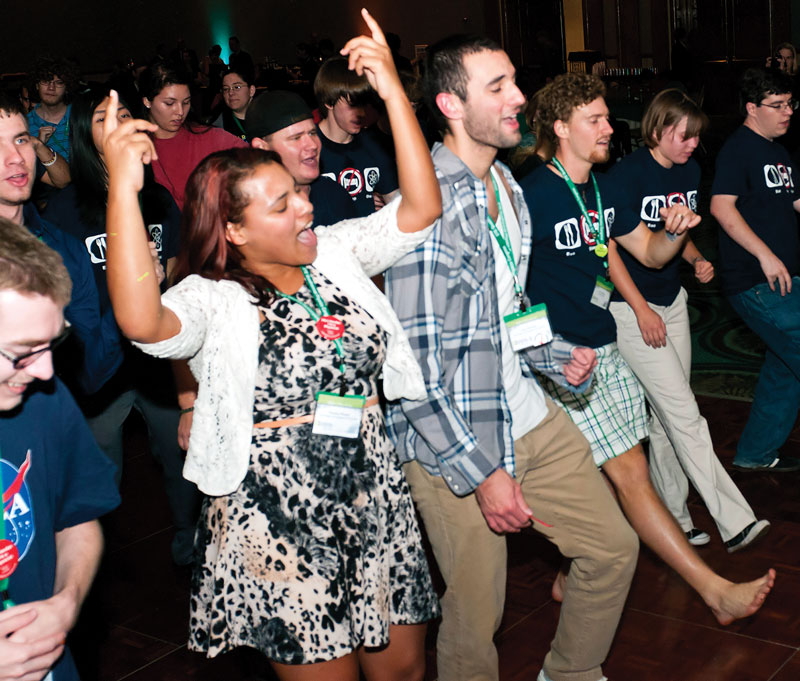Physics for All
Winter
2012
Letter
Physics for All
Toni Sauncy, SPS Director

What a fantastic time to be involved in the great science of physics! Admittedly, there probably hasn’t been a time when that was not true. Those with physics backgrounds join a professional community in which opportunity abounds and graduates are sought after as valuable members of the STEM workforce. The Society of Physics Students holds high the ideals of professional development, support, and service to the growing number of physics majors. Working with undergraduates brings the privilege of witnessing fresh energy and enthusiasm, where awe and respect for their physics predecessors is mixed with bold, unapologetic curiosity about pushing limits and understanding more. This is a relatively small (approximately 14,000 undergraduate physics majors in the US), yet powerful group of young scientists who will infiltrate the world in ways that we have not yet imagined with creativity, wisdom, insight, skills, and problem-solving abilities.
One of the highest callings of SPS is inviting all kinds of people into physics, as voiced in the 2009 SPS Statement on Diversity (www.spsnational.org/governance/statements/2009diversity.htm). Diversity is beneficial to physics: people of diverse backgrounds working on the same problem will view it from different perspectives and bring their own life experiences into the project. Diversity of people adds diversity to the work.
In this issue, we take a look at the current status of one of the underrepresented groups in physics: women. As a beginning student, I was privileged to be influenced by some outstanding mentors who introduced me to the APS Committee on the Status of Women in Physics (CSWP). It was a life-changing experience to walk into the CSWP reception at my first American Physical Society (APS) March meeting and discover a room full of physicists talking about interesting science, all of whom happened to be women. I had never before been in any room where there were more women than men talking about the subject that I adored. That interaction helped me begin to be part of the conversation. CSWP has had a tremendous impact on the climate for women in physics departments. The conversation has continued. In recent years, growing numbers of students have been powerfully impacted by participation in the Conferences for Undergraduate Women in Physics, now sponsored by APS.
The less-than-desirable state of diversity among the physics community is not new. Our hope in this issue of The SPS Observer is to engage new voices among the communities that that we serve, to encourage dialogue in the study rooms and lounges and dorm rooms across the country where all kinds of students struggle to define personal identities as contributors to science. We hope to be that quiet whisper that gives cause for young colleagues that come from different backgrounds, with different perspectives on science, different priorities, different cultural traditions and maybe less importantly with different genders—to engage in a simple conversation of inclusion and to be drawn in safely enough to wonder “why?” or “how?”. Moreover, we hope to encourage everyone to become informed enough to begin to formulate a response to that question. Our aim is to have some influence in reshaping physics culture so that it naturally embraces inclusivity and values it as critical to the success of the field. As all groups who have struggled in any position of “underrepresentation” know—this is a long, slow, tricky process. And, like all valid scientific process, in order to make any progress, we must proceed by standing firmly grounded in the work of those who have come before us by studying the issue in great detail, by contributing to support networks, and by living it.
It is our responsibility to ensure that all our constituents and their friends and peers in physics are invited into the discussion that will, with the well guided efforts of many eventually, become extinct as we all find common ground in the unity that physics is fascinating and fantastic and difficult and maddening and frustrating and sometimes even crushing and yet hauntingly inescapable — for lots of us, no matter our differences. //
